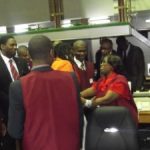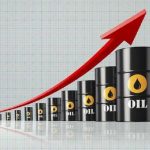Economy
Investors Lambast SEC for Double-Standards
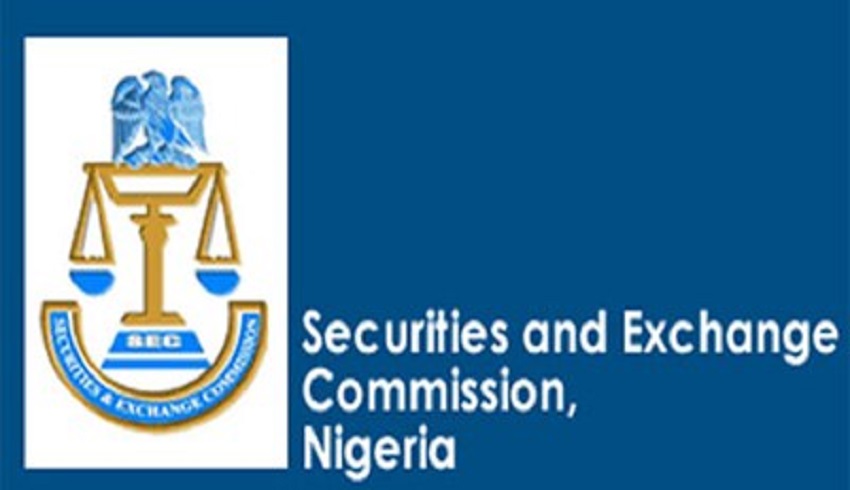
By Modupe Gbadeyanka
Investors in the Nigerian capital market have slammed the Securities and Exchange Commission (SEC) for failing the corporate governance test it punishes players in the sector for.
According to a report by The Nation, the apex industry regulator has not published its yearly reports and accounts for four years.
The last annual reports and accounts of the commission was for the year ended December 31, 2013, halting a tradition that had seen SEC publishing its annual reports yearly for more than a decade.
However, any company listed on the trading floor of the Nigerian Stock Exchange (NSE), which fails to file its earnings is heavily fined by the regulators and sometimes suspended from trading.
According to The Nation, the failure of SEC to publish its financial statements is a violation of the Investment and Securities Act (ISA) 2007, Code of Corporate Governance and extant rules at the capital market.
Asked why SEC has been unable to prepare and publish annual reports and accounts and whether the failure to publish annual reports for years will not undermine the moral authority of the agency, SEC’s Corporate Communication Department requested for “some time” to respond. It has not responded for more than three weeks.
Those who spoke on the matter on condition of anonymity, because they were under the regulatory purview of SEC, decried what they described as double-standards of the regulator.
A survey of stakeholders, including shareholders, capital market operators and quoted companies, was unanimous that the inability of SEC to publish its annual reports and accounts annually was a major failure that exposes capital market to ridicule in the comity of international markets.
Both the SEC and Nigerian Stock Exchange (NSE) enforce stringent disclosure and transparency rules that include submission of quarterly and annual reports within stipulated timelines, with penalties for violation including monetary fine, suspension of trading, “naming and shaming” and in the extreme cases, delisting of such violators. The NSE has meanwhile maintained publication of its annual report and holding of annual general meeting.
A source blamed the failure on “some internal challenges”, including the absence of a board for the Commission. However, the failure to publish yearly report predated the dissolution of the board of the Commission in 2015 by President Muhammadu Buhari’s administration.
According to ISA, the board of SEC is responsible for the financial management of the Commission. The ISA stipulates that the Commission shall cause to be kept, proper books of records and accounts “which shall be audited by auditors appointed by the board of the Commission”.
ISA requires SEC to, not later than three months after the end of each year, submit to the Minister and the National Assembly, a report on the activities and administration of the Commission during the immediately preceding year and, shall include in such reports, audited accounts of the Commission and the report of the Auditor on the accounts.
Existing rules at SEC requires capital market operators to file their annual reports and accounts “not later than six months after the end of the accounting year” and “where a market operator fails to file quarterly returns twice in a year and nine months after the annual accounts becomes due, the market operator shall be referred for further enforcement action”.
SEC is proposing to tighten the rules by reducing the submission period to three months, citing the need to harmonise the rules with the requirements at the NSE.
In justifying the reduction of the period to three months, SEC noted that “the current practice is not in tune with the risk-based approach to monitoring of capital market operators (CMOs) and the information required may have become obsolete six months after the accounting year of a CMO”.
Corporate governance rules at the stock market require quoted companies to submit their audited annual reports, not later than 90 calendar days, or three months, after the expiration of the period.
Economy
Naira Trades N1,600/$1 at Official Market, N1,630/$1 at Black Market
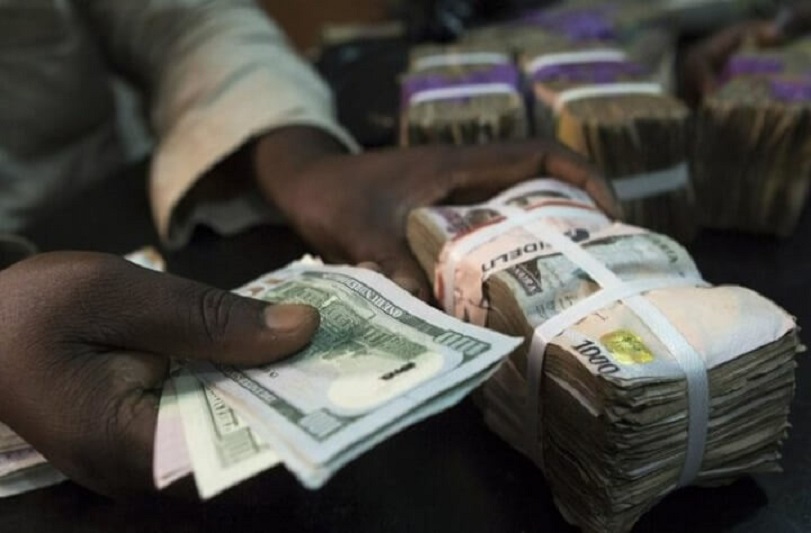
By Adedapo Adesanya
The Naira closed stronger against the United States Dollar in the Nigerian Autonomous Foreign Exchange Market (NAFEX) by N9.35 or 0.58 per cent on Monday, May 12 at at N1,600.29/$1 compared with the N1,609.64/$1 it traded last Friday.
Similarly, the Nigerian Naira improved its value against the Pound Sterling in the official market during the trading session by N31.46 to settle at N2,114.02/£1 versus the preceding trading day’s rate of N2,145.48/£1 and appreciated against the Euro by N37.61 to sell for N1,780.81/€1, in contrast to the previous session’s value of N1,818.42/€1.
The improvement in the value of the local currency yesterday happened after a temporary relief from the US-China tensions and further commitments by the Central Bank of Nigeria (CBN) to intervene in the market.
However, the Nigerian currency depreciated against the Dollar in the black market on Monday by N5 to close at N1,630/$1 compared with the preceding session’s rate of N1,625/$1.
As for the cryptocurrency market, it was red during the trading session after the US and China agreed to suspend most tariffs on each other for 90 days.
The 90-day tariff pause gave market participants a “clear, short-term positive signal” that’s supportive for risk assets including crypto, even though headwinds could rise again without a broader deal in place once the pause expires.
According to market analysts, this is a temporary arrangement and volatility will likely return as the 90-day window approaches its end.
Dogecoin (DOGE) slumped by 6.6 per cent to sell at $0.2232, Cardano (ADA) fell by 3.0 per cent to $0.7890, Solana (SOL) went down by 2.1 per cent to $170.80, Ethereum (ETH) declined by 2.0 per cent to $2,451.16, Bitcoin (BTC) depreciated by 1.6 per cent to $102,394.53, and Binance Coin (BNB) shrank by 1.1 per cent to $648.78.
But, Ripple (XRP) gained 4.5 per cent to quote at $2.49, and Litecoin (LTC) increased its value by 1.7 per cent to $102.78, while the US Dollar Tether (USDT) and the US Dollar Coin (USDC) remained unchanged at $1.00 each.
Economy
Nigeria Implementing Initiatives to Support Startup Ecosystem—Minister
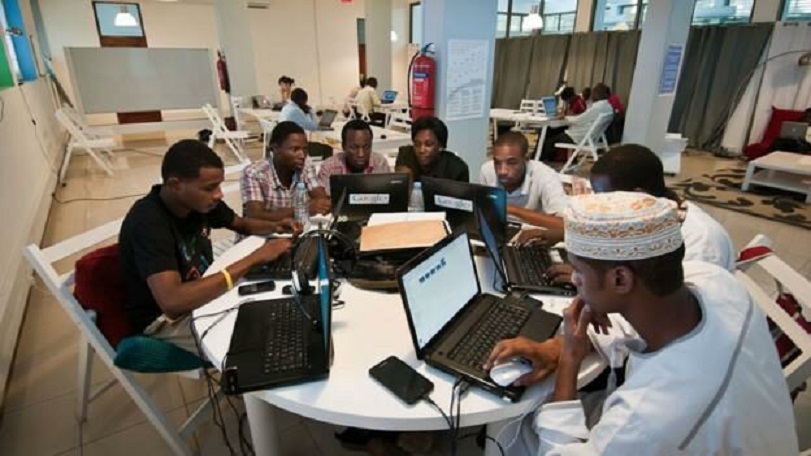
By Dipo Olowookere
The Minister of State for Finance, Ms Doris Uzoka-Anite, has advised global investors to quickly key into the federal government’s economic reforms so as not to bite their fingers later because of a missed opportunity.
Speaking during the Milken Institute Global Conference 2025 in the United States, she said the administration of President Bola Tinubu was implementing some initiatives designed to support the startup ecosystem.
She described Nigeria’s startup ecosystem as dynamic, with opportunities for investment in fintech, agritech, edtech, logistics, and health, assuring that the government is committed to supporting players in the sector through regulatory reforms, catalytic funding, and talent development.
According to her, the government is carrying out some necessary reforms to achieve its economic objectives, including streamlining the investment climate, improving infrastructure, and enhancing trade efficiency.
The Minister said the main aim of the administration is to position Nigeria as a hub for sustainable growth and innovation in Africa, urging investors to explore opportunities in the country.
Ms Uzoka-Anite emphasised that Nigeria is deepening intra-African trade and investment through the African Continental Free Trade Area (AfCFTA), unlocking value across the continent.
The AfCFTA’s phased implementation, she said, will reduce tariffs on 90 per cent of goods traded within Africa, promoting intra-African trade and regional value chain development.
This strategic move positions Nigeria for high-potential investment opportunities in key sectors such as agriculture, energy, digital economy, manufacturing, infrastructure, mining, and healthcare.
“We are not simply seeking aid or short-term capital, but strategic collaborations that recognize the continent’s potential as the next frontier for sustainable growth and innovation,” she said.
Economy
FG Floats Fresh N300bn Sukuk at 19.75%, Repays 2017 N100bn Sukuk

By Dipo Olowookere
The federal government is looking to borrow about N300 billion from investors through the issuance of a fresh Sukuk, with an annual rental income of 19.75 per cent.
The Islamic debt instrument will have a tenor of seven years and will mature in May 2032, according to the Debt Management Office (DMO), which is in charge of the sale.
Proceeds from the exercise will be used mainly to finance road projects across the country to meet the ethical and faith considerations of some segments of the investing public.
The interest will be paid every six months and is tax-free, providing a good route for wealth accumulation and investment compounding.
Speaking on Monday during an investor meeting in Abuja, the Director General of the DMO, Ms Patience Oniha, emphasised that the recent credit rating upgrade of Nigeria by Fitch Ratings reflects the progress in economic and debt management reforms.
“Being upgraded by Fitch means we are doing something right. Growth and development is a journey—it doesn’t happen all at once.
“But with the right fiscal and monetary policies in place, we are making tangible progress,” she told investors present at the gathering, stressing that the upgrade directly affects investment decisions, business performance, and market pricing.
She used the occasion to announce the repayment of the N100 billion Sukuk sold in 2017 by the federal government.
“All those who subscribed to the Sukuk in 2017 have now received full repayment of their investments, in addition to the interest they were paid upfront,” Ms Oniha declared.
Business Post reports that the 2027 Sukuk was used to fund road projects across the six geo-political zones of Nigeria, including the Lagos/Abeokuta Expressway, which has yet to be completed.
For the new N300 billion Sukuk, the minimum investment amount is N10,000. It is fully backed by the full faith of the Nigerian government and can be purchased through a stockbroker.
Subscription for the debt instrument commenced on Monday, May 12, 2025, and will end on Tuesday, May 20, 2025.
-

 Feature/OPED5 years ago
Feature/OPED5 years agoDavos was Different this year
-
Travel/Tourism9 years ago
Lagos Seals Western Lodge Hotel In Ikorodu
-

 Showbiz2 years ago
Showbiz2 years agoEstranged Lover Releases Videos of Empress Njamah Bathing
-

 Banking7 years ago
Banking7 years agoSort Codes of GTBank Branches in Nigeria
-

 Economy2 years ago
Economy2 years agoSubsidy Removal: CNG at N130 Per Litre Cheaper Than Petrol—IPMAN
-

 Banking2 years ago
Banking2 years agoFirst Bank Announces Planned Downtime
-

 Sports2 years ago
Sports2 years agoHighest Paid Nigerian Footballer – How Much Do Nigerian Footballers Earn
-

 Technology4 years ago
Technology4 years agoHow To Link Your MTN, Airtel, Glo, 9mobile Lines to NIN








